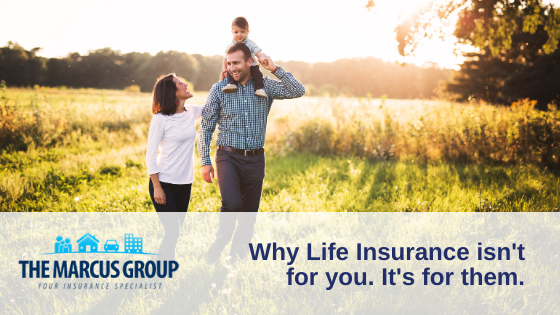
Why Life Insurance isn’t for you. It’s for them.
November 15, 2019
Why are Florida Homeowners Insurance Premiums Rising?
August 20, 2020If you own a home or drive a car, you’ve probably wondered at some point why your insurance rates seem to increase each year. You likely didn’t file a claim on your home and you didn’t have an automobile accident, so what’s the deal? Well, barring some exceptions, I can safely say that it’s not you—it’s them. In fact, the insurance marketplace is rather complex and has many moving parts that contribute to what’s going on behind the scenes. Let’s break it down, though, and look at some of the main reasons why our premiums tend to increase year after year.
First of all, it’s important to note that insurance typically operates on a shared-risk model. This means that when expenses rise (i.e. due to more accidents or claims), those increased costs are absorbed by everyone involved, including the insurance company itself as well as each policyholder. Of course, the insurance company is also operating a business, trying their best to balance product sustainability and profits, avoid agency ranking downgrades, and remain competitive enough to win customers to keep everything afloat. So, one way to figure out why our premiums are going up is to ask: what’s getting more expensive for the insurance company? Just about everything, it turns out.
Automobile insurance is a great place to begin uncovering the mystery of ever-rising premium costs. Quite simply, the data show that there are more vehicles on the roads now than ever before—no surprise there. It also turns out that there are more distracted drivers than ever before—now that’s a bit worrisome. Taken together, it’s easy to see that there are more accidents occurring, overall, which leads to more claims and more payouts. Tied directly into this are the rising costs of health care and vehicle repair; as costs to treat accident-related injuries increase and car repairs become more expensive due to the complexity of the components, our premiums play catch-up and we see the increase on our bill.
When it comes to homeowners insurance, natural disasters are undoubtedly playing a larger-than-expected role in rising premiums. This has actually caught many of the insurance companies off guard, as even they were not expecting such high damages due to recent hurricanes and wildfires. The resultant “loss creep” (i.e. losses due to unforeseen influences or events) has sent insurance companies scrambling to maintain proper reinsurance. Wait—what is “reinsurance”? That’s the insurance policy that your insurance company buys from other insurers to protect themselves from catastrophic losses. You see, even they have premiums to pay. And, those premiums go up after the insurance company dishes out payments to their policyholders following a natural disaster.
The accumulation of losses from the variety of natural disasters in the last few years has contributed greatly to hardening the insurance market, leading to stricter underwriting, reduced competition, and increased premiums. Damages due to wildfires in California in just the last three years, for example, has surpassed the combined costs of any previous 10-year period dating back to 1970. Hurricane damage has been similarly devastating in recent years, as well. Furthermore, insurance companies have traditionally viewed wildfires and hurricanes to be a “secondary” risks. However, with environmental conditions increasingly being favorable to wildfires—and worsening hurricanes—the rising costs are hitting everyone as insurers attempt to recover from the damages that such events have caused.
Besides the main factors already mentioned, there are several less obvious things that influence rising insurance rates. Some examples include: changes in state or national regulatory policy, lawsuits and rising attorney fees, increasing cases of fraud, changes in reinsurance purchasing strategies, and even lower yields on fixed-income securities. So, in order to properly maintain coverage for their policyholders and ensure future payouts, it would seem that insurance companies are left with few remedies other than to raise rates to compensate for the ever-mounting liabilities and catastrophic losses.
While it may be an inconvenience—and annoyance—to see our premiums rise despite having done nothing wrong, it may just be something we have to accept in order to keep our lifestyles comfortable and our minds at ease, knowing that we’re covered in the event that the unexpected does indeed arrive at our doorstep.




